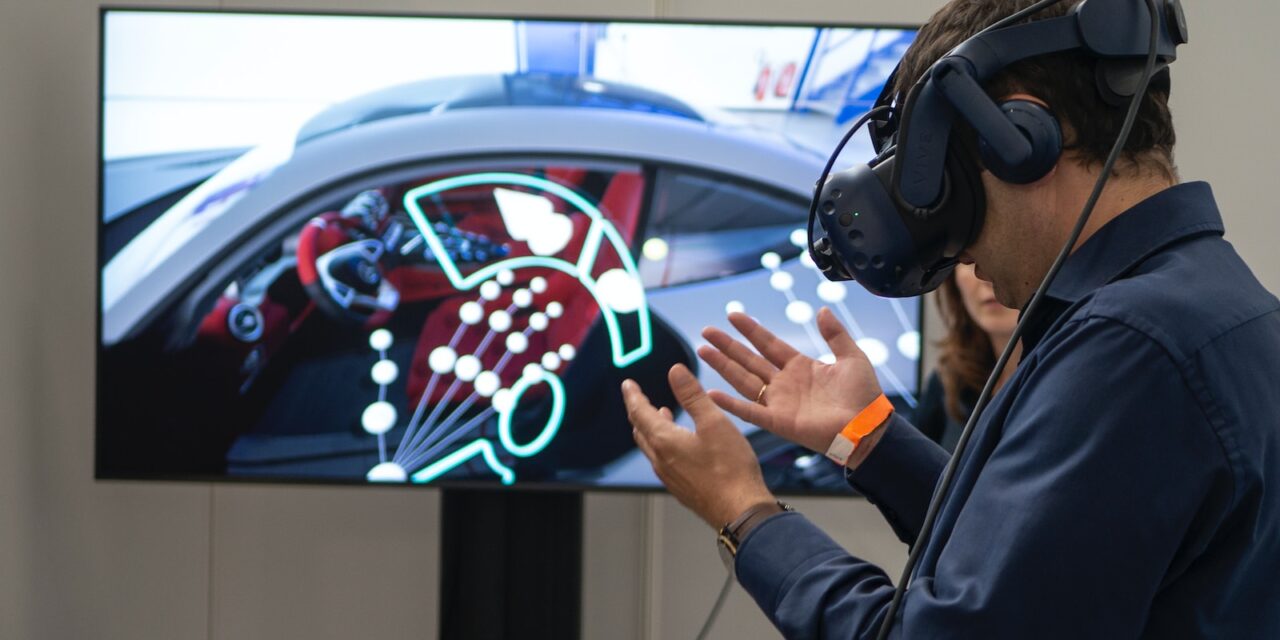In a challenging market, standing out from the crowd is critical to winning business and staying ahead of the competition.
B2B marketers everywhere will recognise that success often comes down to the finest of margins and brand recognition can mean closing the gap between a new business win and being passed over.
Marketing teams have recently faced increased pressure to do more with less. Add to this the familiar demand for a clear correlation between marketing activity and business growth and it’s hard to know what do do for the best. The focus on metrics, while understandable, focuses on short-term metrics, such as lead acquisition, but it often comes at the expense of overall brand recognition and reputation.
Brand Building
A survey by Bain and Google revealed that 80%–90% of respondents have a set of vendors in mind before they do any research. Just as important, 90% of them will ultimately choose a vendor from the day one list. To be on that list means relying on having been noticed. Your brand may stand out to you, but how does it stand out from the crowd?
We often see resistance to focusing on brand building when it is viewed as a binary choice between raising awareness and lead generation. But it can work together. An unwavering focus on brand building and generating customer demand at the top of the sales funnel enables organisations to remain top of mind and build brand awareness across their respective industries. When their prospects enter the buying cycle, it’s easy for them to decide who they will buy from—reliable brands that they already know and trust.
Ultimately, brand building supports your sales team’s conversations with prospects and helps convert them into customers. We’re all familiar with the ongoing pressures of economic uncertainty, fast-moving technology, changing customer behaviours, and pressure to demonstrate ROI, which all add to the challenge. However, there are opportunities to stay ahead of the competition and make your brand stand out.
Hybrid Events
We recently produced a report at onebite that looked at key marketing trends for 2024. One of our key findings is that the legacy of the pandemic will continue to impact marketing trends. In-person-only events are a thing of the past. The continued expansion of hybrid events offers a broader range of event experiences.
Event management solution Bizzabo conducted a survey of industry professionals and found that 97% of respondents expect to see more hybrid events going forward. While zippo published a report revealing that hybrid events experience an average 40% higher attendance than in-person only events. This surge reflects the evolving preferences of global audiences, as the convenience of remote participation, broader reach, and cost savings are blended with genuine interaction, and authenticity prevalent in face-to-face encounters.
Virtual and Augmented Reality
Virtual Reality (VR) and Augmented Reality (AR) are only going to increase in accessibility and popularity. According to Snap Consumer, almost 75% of the world’s population, and almost all people who use social and communication applications, will be frequent users of AR by 2025. Interactive tech creates an immersive environment and helps attendees, both virtual and physical, feel part of the experience.
For a B2B tech company, VR can create a virtual environment where clients can explore a product in detail, such as a software interface or a piece of hardware. It’s an experience that transcends traditional brochures or videos, allowing clients to interact and engage with the product.
AR can overlay digital information on physical objects, providing real-time guidance and support. Imagine a manufacturing company using AR to guide technicians through complex machinery maintenance, enhancing efficiency and accuracy. However, implementing AR and VR in B2B marketing is not merely about the technology itself; it’s about understanding your audience and how these tools can enrich their experience with your brand. The success of an AR or VR campaign hinges on how well it aligns with your client’s needs and interests.
AI
Another stand-out and unavoidable trend for 2024 is AI. Like it or not, you need to get on board with AI and B2B marketers mustn’t be left behind. Ensuring AI is built into your marketing plans for the next twelve months is vital to ride the wave created by imminent advances in technology.
Nearly two-thirds of marketers (64%) say that AI will be very or critically important to marketing success over the next twelve months. However, many marketers don’t understand AI’s potential. AI’s breadth and capabilities are huge, but there are some simple and effective ways you can apply it.
Integrating AI into your marketing can support engagement and create personalised experiences throughout the customer journey. Take time to plan your strategy, identify where AI should (and shouldn’t) be used, and ensure it equips your team with additional insights to refine your approach.
Integrating AI with your CRM creates a powerful tool to analyse feedback, support interactions, and empower your team to intervene when required. Chatbots using natural language processing (NLP) technology can respond to customer queries, give real-time personalised assistance, and collect valuable data to further your personalisation strategy. Collection of third-party data is expected to be phased out soon and in response, companies are increasingly leaning towards first-party data collection and insights. AI can help analyse this data and create personalised experiences based on understanding your customer requirements.
Looking at it pragmatically, AI can take care of repetitive or administrative tasks. Adding AI to your martech stack will free up time to focus on growing your brand, engaging with your prospects, and driving commercial success for your business.
On to 2024
Looking ahead, economic uncertainty, fast-moving technology, changing customer behaviours, and pressure to demonstrate ROI will always be a challenge, but there are opportunities to stay ahead of the competition and make your brand stand out. By researching your audience before putting pen to paper and focusing on creating a personalised, immersive, and omnichannel experience, your team can focus on driving the commercial success of your business.

Kiri Craig is Managing Partner at onebite, an independent B2B marketing agency for tech and telco brands.





